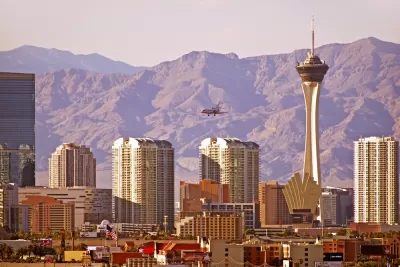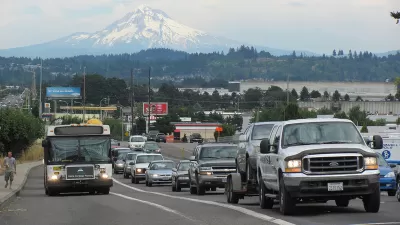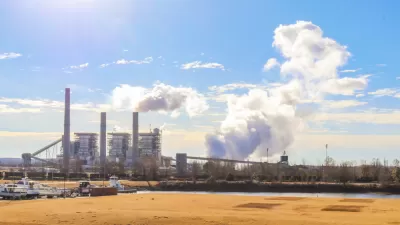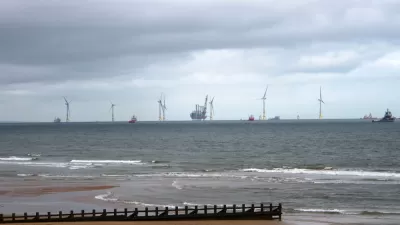Excessive heat will impact the desert city in the coming years, and major steps need to be taken now to change its course.

"Las Vegas is the fastest-warming city in the United States, its temperatures having risen 5.76F since 1970. A June study of coroner data by the Las Vegas-based Desert Research Institute found a correlation between heatwaves and heat-related deaths in southern Nevada, both of which, they say, are on the rise," writes Dan Hernandez.
The effects of climate change are being exacerbated in Las Vegas by rapid growth, increased carbon emissions from vehicles, and large expanses of concrete and asphalt that have created a heat island. And the city’s most vulnerable residents—low-income residents, the homeless, the elderly, children—will face more dire consequences if temperatures continue to rise.
Fernandez notes that the city has instituted a renewable energy program that powers streetlights and government buildings and green energy legislation is making its way along at the state level. Casinos also say that they want to work to establish sustainable infrastructure.
"MGM Resorts has over 20 acres of solar panels atop the Mandalay Bay convention center, and much of the electricity flowing through properties like the Bellagio, Luxor and New York, New York comes from a solar array in the Mojave Desert," says Hernandez.
FULL STORY: The hellish future of Las Vegas in the climate crisis: 'A place where we never go outside'

Planetizen Federal Action Tracker
A weekly monitor of how Trump’s orders and actions are impacting planners and planning in America.

Restaurant Patios Were a Pandemic Win — Why Were They so Hard to Keep?
Social distancing requirements and changes in travel patterns prompted cities to pilot new uses for street and sidewalk space. Then it got complicated.

Map: Where Senate Republicans Want to Sell Your Public Lands
For public land advocates, the Senate Republicans’ proposal to sell millions of acres of public land in the West is “the biggest fight of their careers.”

Maui's Vacation Rental Debate Turns Ugly
Verbal attacks, misinformation campaigns and fistfights plague a high-stakes debate to convert thousands of vacation rentals into long-term housing.

San Francisco Suspends Traffic Calming Amidst Record Deaths
Citing “a challenging fiscal landscape,” the city will cease the program on the heels of 42 traffic deaths, including 24 pedestrians.

California Homeless Arrests, Citations Spike After Ruling
An investigation reveals that anti-homeless actions increased up to 500% after Grants Pass v. Johnson — even in cities claiming no policy change.
Urban Design for Planners 1: Software Tools
This six-course series explores essential urban design concepts using open source software and equips planners with the tools they need to participate fully in the urban design process.
Planning for Universal Design
Learn the tools for implementing Universal Design in planning regulations.
Heyer Gruel & Associates PA
JM Goldson LLC
Custer County Colorado
City of Camden Redevelopment Agency
City of Astoria
Transportation Research & Education Center (TREC) at Portland State University
Camden Redevelopment Agency
City of Claremont
Municipality of Princeton (NJ)





























